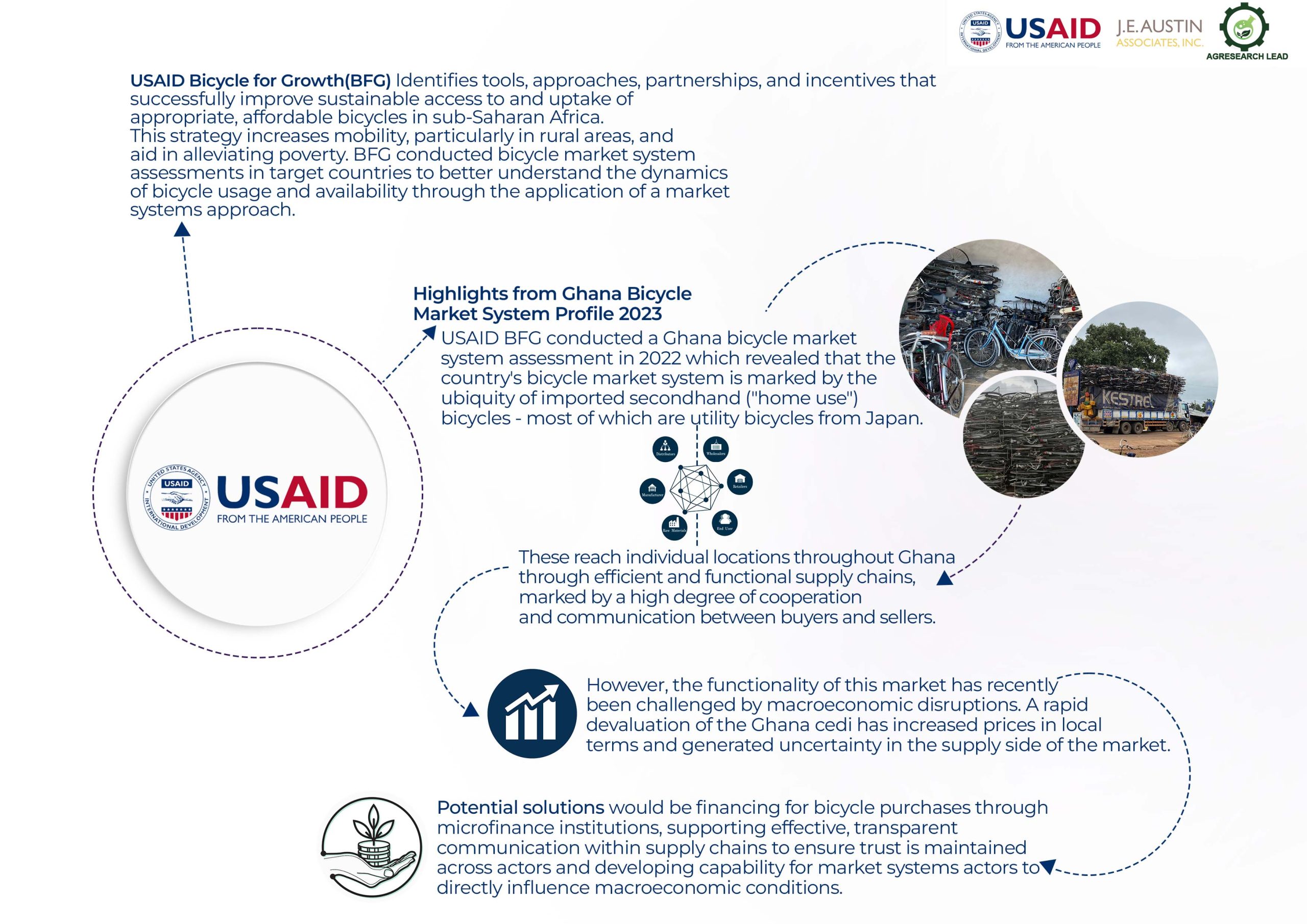Executive Summary
Market Systems Profile Key Findings
The Ghana bicycle market system is well-functioning with high levels of bicycle demand across much of the country (particularly in the north), suppliers located across the country offering bicycles to meet that demand, and a system of widely available spare parts and services to maintain bicycles after purchase. Although official policies have generally not promoted bicycle use, market actors face few sector-specific restrictions.
Demand
Bicycle demand varies across Ghana, with high levels of demand in the northern belt and much lower demand elsewhere in the country. In areas where demand is high, bicycles are important tools for mobility and economic activity (especially for farmers). Affordability is the main demand driver and consideration for consumers. Bicycles are a relatively low-cost means of transportation for individuals and goods, especially in rural areas in which alternatives are limited. Nonetheless, many individuals report that the cost of acquisition is the primary reason that they do not currently own a bicycle.
Supply
The supply of bicycles in Ghana is fairly homogenized: most bicycles for sale are secondhand utility bicycles originating from Japan. Other styles of bicycles from other origin markets (e.g., mountain bicycles from Europe) are present but less ubiquitous, though these too are generally secondhand. New low-cost bicycles are relatively rare, in contrast to many other bicycle market systems (e.g. Malawi, Uganda, Zambia) in which Chinese and Indian imports are dominant. Suppliers exhibit high degrees of trust within supply chains such that the extension of supplier credit is common. Sellers are present throughout the country, though less commonly in isolated rural areas.
The supply side of Ghana’s bicycle market system has additional features which make it distinct. For example, Ghana is a hub for regional bicycle trade. Many of the bicycles imported to Ghana are transported onward to neighboring markets, such as Burkina Faso for sale there. Several wholesalers purchase thousands of bicycles annually from foreign buyers, while smaller scale cross-border trade is also common. Additionally, Ghana has a small-scale, but thriving bicycle manufacturing sector primarily consisting of social enterprises producing bamboo bicycle frames for sale in international markets.
Systems
Services and structures to support the ongoing maintenance of bicycles are well-functioning – with spare parts and mechanics widely available (though cost barriers remain to varying degrees). Formal financial services are mostly unutilized by market system actors, although supplier credit is widely utilized within supply chains. Bicycle-related advocacy, both on supply and safety or user experience matters, is limited and policymakers at all levels pay scant attention to bicycle issues.

